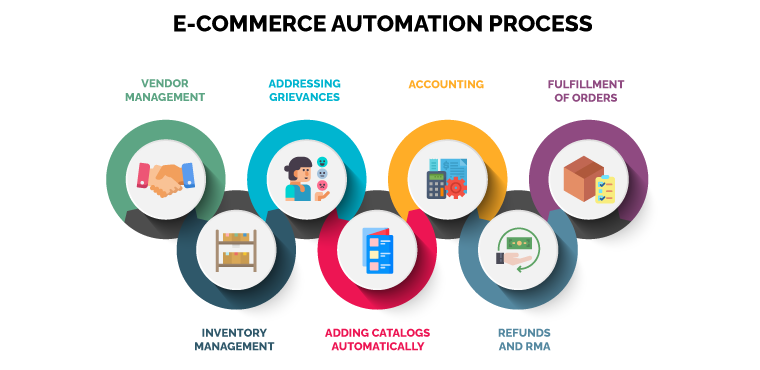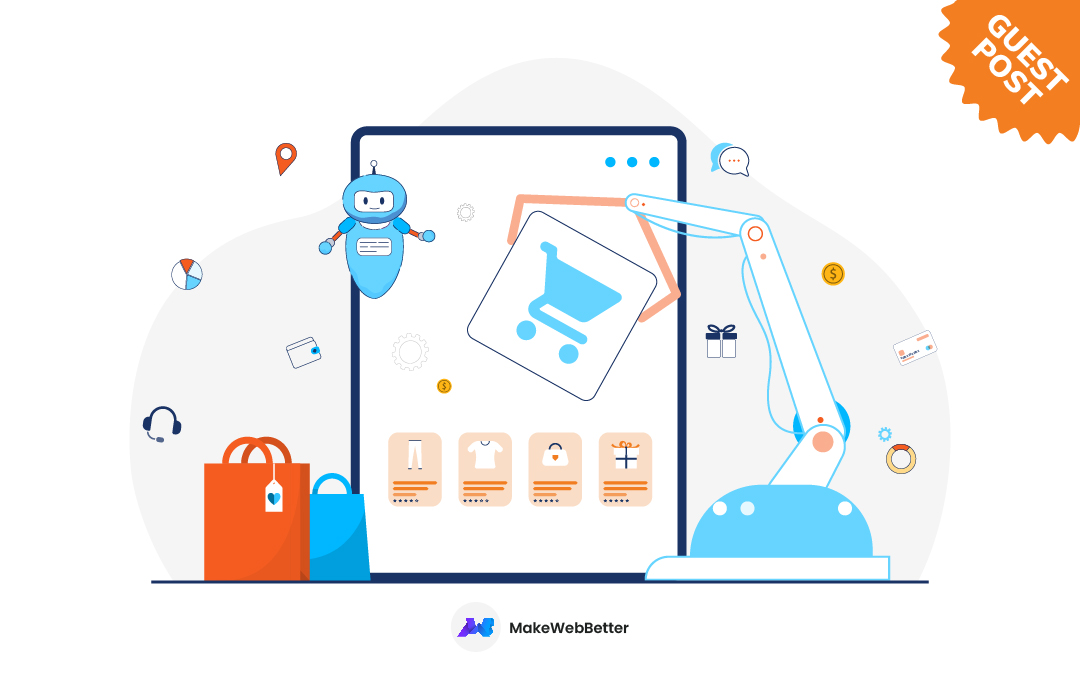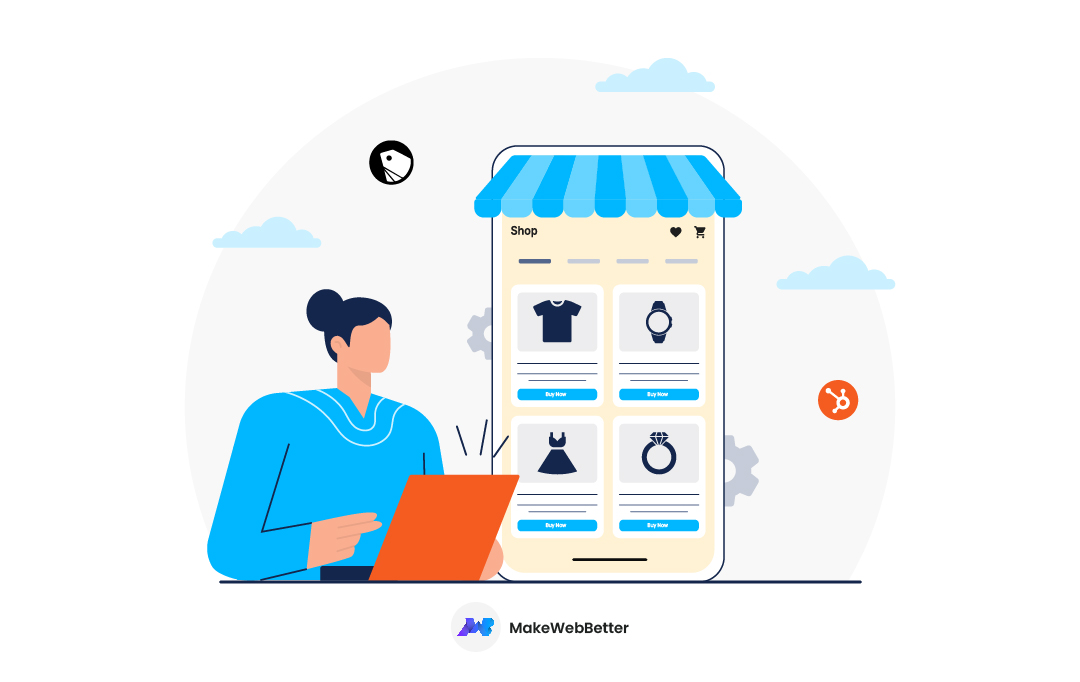According to research conducted by IBM, 61% of businesses are already using automation and tools and 19% are planning to join them next year. This means that almost 80% of businesses will be leveraging automation by 2023. Even small to midsize businesses have started automating their email and social media marketing campaigns.
One of the primary reasons behind the rapid adoption of automation in eCommerce is that it can slash your business expenses and improve your business productivity. Not only that, but it can also help your eCommerce business generate more sales and increase your revenue.
Interested in learning more about eCommerce automation? You are at the right place. In this article, you will learn about how ecommerce automation can help your business grow.
What is eCommerce Automation?
As the name suggests, eCommerce automation is about automating different business functions and processes of your eCommerce business to boost business efficiency.
eCommerce automation makes use of technology to help manage multiple tasks like inventory management, marketing, personalization, product/order management, market segmentation, handling shipping, etc. involved in running an e-commerce store. Moreover, the core principle of utilizing automation in your routine eCommerce processes is to identify repetitive tasks or any manual process that could be better done by software, applications, or technology; and to save crucial staff hours by implementing automation.

Source: quixy.com
a. Examples and Use Cases For eCommerce Automation
Let’s say, a visitor visits your eCommerce website and searches for a product. After finding the product they are looking for, they add it to their cart but do not complete the purchase. You can take advantage of eCommerce automation to send them automatic emails reminding them about completing the purchase.
Another use case of eCommerce automation could be the use of a chatbot for customer support and answering user questions. You can use a chatbot to answer user questions during odd hours when your customer support team is not present.
eCommerce businesses can also leverage eCommerce automation to personalize the shopper experience by offering them relevant product suggestions and recommendations. Moreover, they can also take things to the next level by offering them custom pricing, offers, and discounts based on the customer.
b. Advantages of eCommerce Automation
eCommerce automation has many advantages. Some of them are:
- Saves time and money
- Increase employee engagement and satisfaction
- Boost overall business productivity and efficiency
- Enhances customer satisfaction
- Deliver a personalized shopping experience
- Ability to run hyper-targeted marketing memes.
c. Challenges in Implementing eCommerce Automation
Just like every other technology, eCommerce automation also has its challenges.
- Inventory management
- Customer loyalty
- Order handling
- Marketing
How eCommerce Automation Can Help Your Online Business Grow?
Here are some of the ways in which eCommerce can help you get over all the obstacles and guide your business on the path of success.
1. Streamlining Inventory Management
The best way to resolve all your inventory management issues is to automate your inventory management process. That is where ecommerce automation can come into play. Most eCommerce businesses use multiple systems to manage their operations.
It could be a warehouse management system, procurement management system, enterprise resource planning system, customer relationship management system, and your ecommerce platform. When you integrate all these systems, you can get a unified view of your inventory in real time. This makes inventory management more convenient as you clearly know how many products are left in your inventory and when you should place an order for procurement.
2. Improves Customer Satisfaction and Builds Customer Loyalty
eCommerce automation can help you deliver a more personalized shopping experience by offering relevant product recommendations and offers to the right customer at the right time. This sends a clear message to customers that your business not only knows about their preferences but also cares about them.
This will automatically improve customer satisfaction. When your business consistently delivers an amazing shopping experience to your customers, it will boost your customer loyalty. This will turn them into brand advocates as they will spread the word by sharing their positive experiences with your brands with their friends and family members.
Let’s say, you are selling a cheap dedicated server and it delivers stable performance over long periods of time. This can work in your favor. More and more customers will not only buy your dedicated server but also check out other offerings such as VPS Singapore.
3. Smart Order Management
Order fulfillment is an integral part of any ecommerce business. In fact, it could make or break your eCommerce business. The credibility of your online store and the future growth prospect of your eCommerce stores depends heavily on how quickly you are fulfilling the orders you are receiving. If your customers are not receiving their orders on time due to any reason, this will make them think twice before ordering from your store in the future.
If your online store is receiving hundreds and thousands of orders every day, it will be difficult to fulfill them manually. It is better to use automated delivery software to manage orders efficiently. This will also minimize the risk of shipping the wrong order to customers.
With an order management system at your disposal, you can also track orders in real time. If the order has not been shipped to customers, you can expedite the delivery process by contacting the concerned authority to prevent delays. This is equally important if you are offering same-day delivery or next-day delivery.
4. Targeting and Segmentation
eCommerce automation gives you access to actionable insights about customer behavior and preferences. You can use this data to break down your customer base into smaller segments and then target those segments with relevant and personalized messaging and offers.
Businesses can also track how users are interacting with their websites and what products they are buying the most. More importantly, you can retarget customers who exit your ecommerce website without making a purchase with highly targeted marketing campaigns.
With useful customer data at your disposal, you can easily convert website visitors into paying customers. You can also go at a deeper level and improve every interaction your prospects have with your brand and every touchpoint they go through. This will increase your chances of generating more sales and grow your business.
You can also schedule and automate your email marketing campaigns so the right buyers get the right email at the right time. For instance, if a buyer has not completed the checkout process and left mid-way in the process, you can send them emails reminding them about the incomplete action. Add in a voucher or discount code to persuade them to take the desired action.
Summing Up!
After reading all of this information about ways in which eCommerce automation can impact your business, you may be overwhelmed. However, remember that it is all worth it because you get to manage your time in better ways now by investing yourself in higher priority tasks.
Moreover, a strong eCommerce automation platform tends to take your business to a new level of success. Hence, it is time to ditch the traditional manual processes for the technically acquainted automation procedures.
Have you implemented automation in ecommerce?
If yes, how did it impact your business? Share your experience with us in the comments section below.








